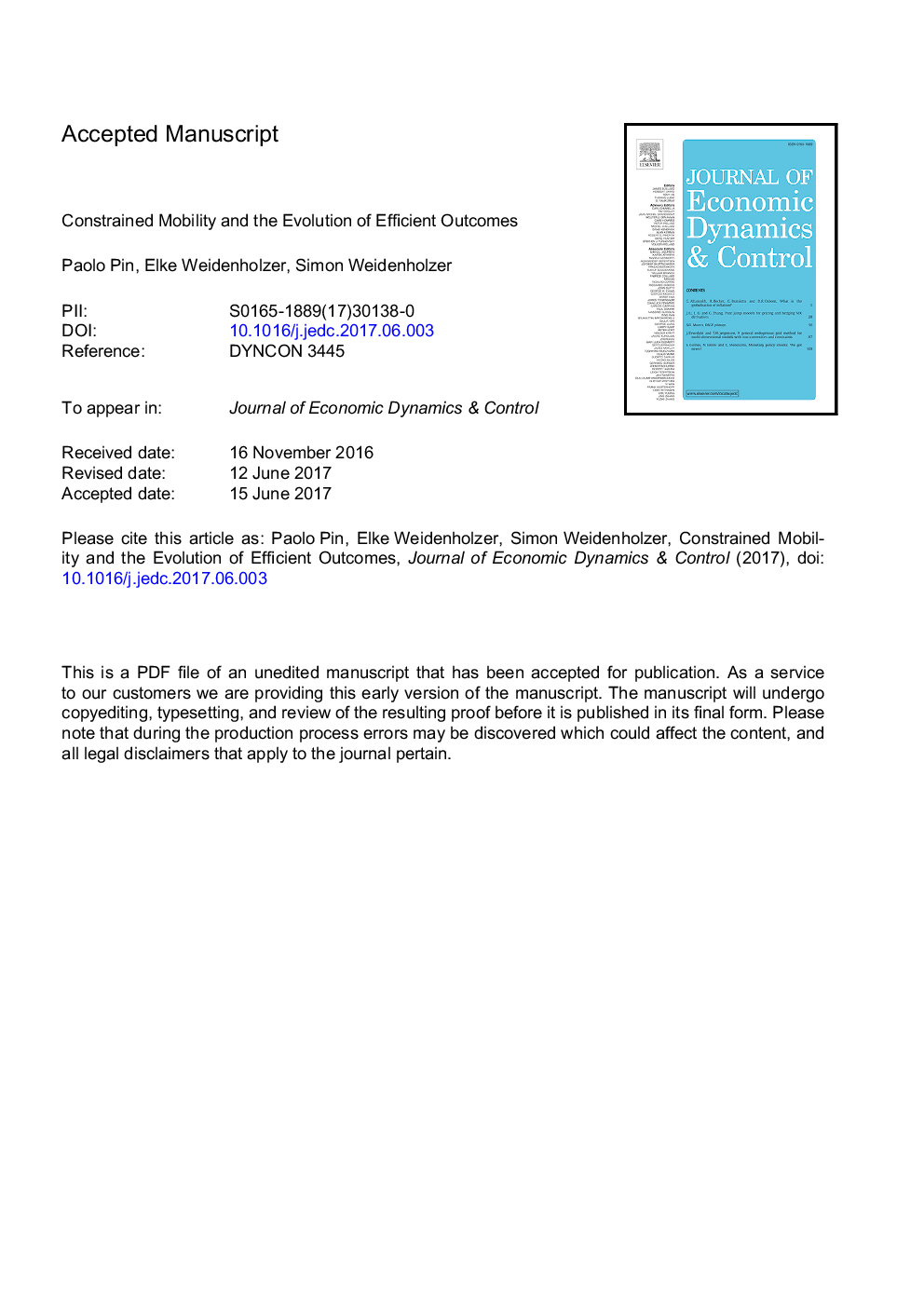| Article ID | Journal | Published Year | Pages | File Type |
|---|---|---|---|---|
| 5097979 | Journal of Economic Dynamics and Control | 2017 | 28 Pages |
Abstract
We study an evolutionary model akin to the one studied in Anwar (2002) where a set of agents use myopic best response learning to i) determine their action in a 2 Ã 2 coordination game and ii) to choose on which of multiple islands to interact. We focus on the case where the number of agents maximally allowed on each islands is constrained. We extend Anwar's original analysis by considering the case when there may be more than two islands. We find that if the constraints are such that one island may be empty, universal coordination on the payoff dominant action is possible in the long run. If the constraints are such that all islands will be full, then for relatively mild constraints, and apart from special cases, the coexistence of conventions will occur, with one island coordinating on the risk dominant action and all remaining islands coordinating on the payoff dominant action. For relatively stringent constraints all agents will play the risk dominant action.
Related Topics
Physical Sciences and Engineering
Mathematics
Control and Optimization
Authors
Paolo Pin, Elke Weidenholzer, Simon Weidenholzer,
